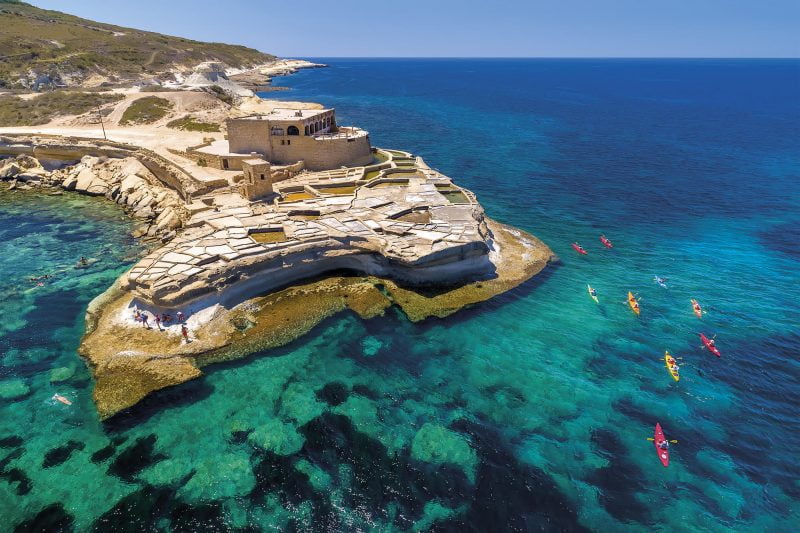Pictures of the interior of a 300-year-old Knights’ era coastal fort taken by photographer Daniel Cilia, some of which are being published by The Shift for the first time, show the extent of ruin after 13 years of court delays and government inaction.
A company called Rook Ltd – led by George Said, Gozo’s nightclub supremo who also co-owns La Grotta in Xlendi – has retained hold of the historic building through the power of a precautionary injunction that put a stay on an eviction order in 2007. Justice sources have told The Shift that the injunction was granted on spurious or flawed legal reasoning.
An investigation by The Shift has now found out that Said “abandoned” the court case four years ago, but the government has not made any move to overturn the precautionary injunction and regain possession of the Qbajjar Battery, which is scenically perched at the tip of a peninsula between Qbajjar and Xwejni bays in Gozo.
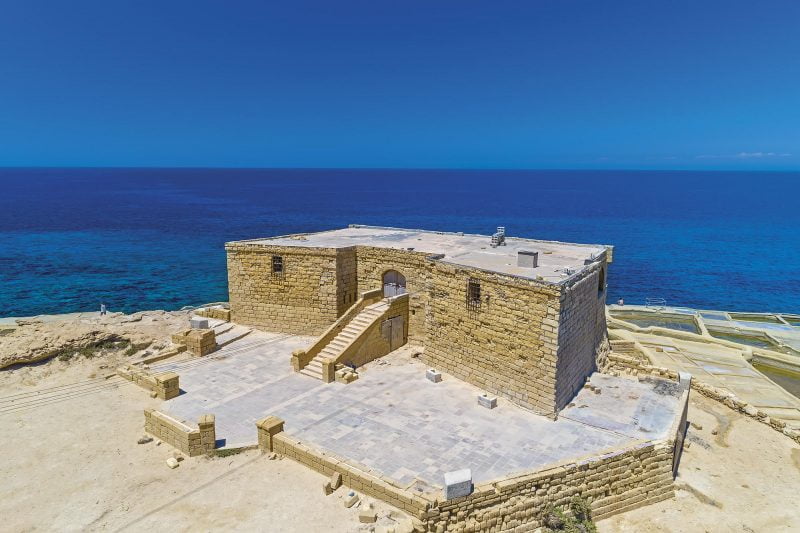
Qbajjar battery. Photo: Daniel Cilia
Asked why the government has not made a court application for revocation of the injunction, a spokesperson for the Lands Authority said, “in the eventuality that the Lands Authority decides to dispose of the mentioned property, a public call for tenders will be issued.”
She also added that the successful bidder “would have to restore this property under the guidance of the Superintendence of Cultural Heritage”.
The spokesperson did not address the unrevoked precautionary injunction of 2007 – a legal limbo that prevents the Land Authority from reclaiming the battery, let alone leasing it out again.
The Shift also approached Said, who did not deny that the precautionary injunction remains in force. Asked what is going on with the battery, especially in view of its deterioration, he said: “I don’t know what’s going on at the moment”.
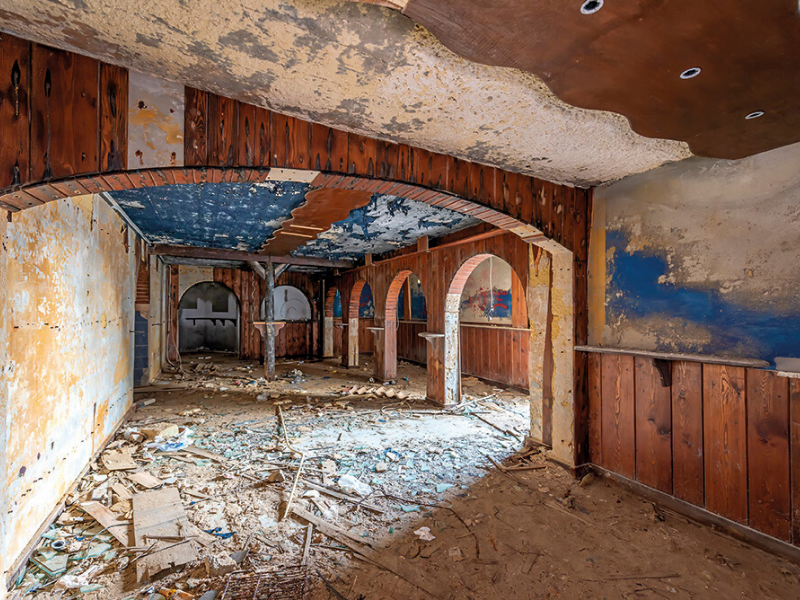
Pictures of the interior show the dilapidated state of the building. Photo: Daniel Cilia.
President of Wirt Għawdex Giovanni Zammit told The Shift that Said mentioned to him about a month ago that he intended to install metal barriers to prevent entry to ‘trespassers’.
People get in through a breached doorway underneath the staircase that leads to the entrance. There have been reports of people camping or partying inside, and faeces are scattered around the interior.
“I have seen bonfires lit on the gun platform of the battery and youths organise parties in it and sometimes sleep over,” Cilia wrote in last month’s issue of Din L-Art Ħelwa’s magazine Vigilo, which featured some of his pictures. “How is it possible that a Grade 1 building is left in such a bad state? Parts of the façade and walls are eroded and crumbling away.”
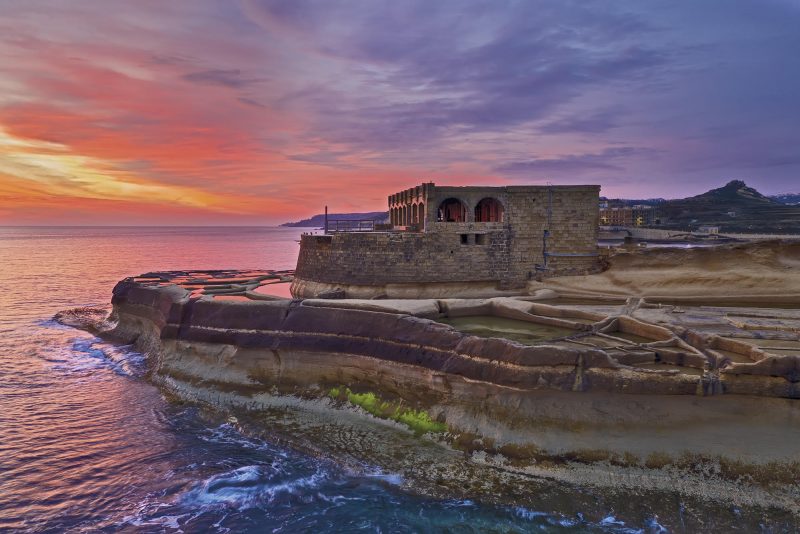
The Qbajjar battery at sunset. Photo: Daniel Cilia
Calls to save the battery have intensified since the publication of Vigilo a week ago. Chris Said, the PN’s spokesperson for Gozo, also asked the Gozo Minister a few weeks ago what was being done to save the battery from ruin. The Gozo Minister replied this week that he was still gathering information.
“Every summer I make reports to the police about barbecues close to the battery’s walls,” Zammit told The Shift.
In 2013, Wirt Għawdex cleaned up graffiti sprayed on the façade. “The Gozo Ministry asked us if we could use restorers engaged with us to scrub the walls,” Zammit said.
The 1715 battery, which was originally armed with cannon on its seaward circular battlements, was originally leased on temporary emphyteusis in 1978. Rook Ltd got it in 1981 and opened it up as a club called Rook.
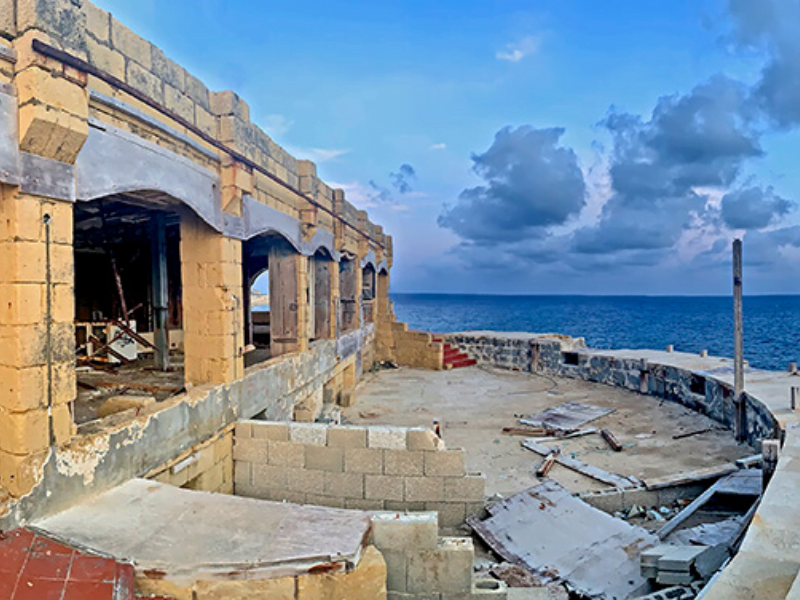
The outdoor area around the Qbajjar battery as it stands now. Photo: Daniel Cilia.
In 1999, the Planning Authority instituted infringement procedures for illegal works, which consisted of extensions of the upper floor, use of concrete bricks, decorative pickaxing of walls, and removal of paving stones on the ground floor. To this day the proceedings remain “pending at enforcement officer”.
The lease eventually expired in 2003 and, four years later, on 7 September 2007, the government informed Din L-Art Ħelwa in a letter that it would evict Rook Ltd and hand over the battery to the NGO.
Said went to court seeking a precautionary injunction against the eviction on the basis of lack of fair hearing. Such pleading is normally invoked after an applicant would have already been tried in court or another quasi-judicial adjudicating body, while a precautionary injunction is normally granted to prevent irremediable damage to the applicant’s rights.
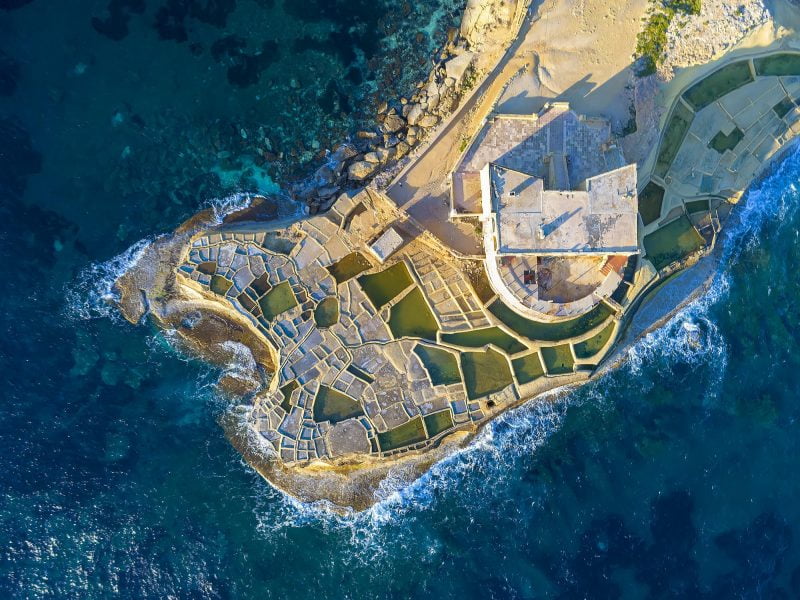
An aerial shot of the Qbajjar battery in Gozo. Photo: Daniel Cilia.
Judge Lino Farrugia Sacco granted the injunction partly on the rationale that Said’s lawyers had announced that they would be filing a constitutional lawsuit. Yet the planned constitutional lawsuit ought to have negated rather than justified the necessity of an injunction because Said could have instead asked for interim measures in the Constitutional Court, according to justice sources who spoke to The Shift.
Said did eventually resort to the Constitutional Court, where the case went before the same judge who had granted the precautionary injunction. The Attorney General requested Farrugia Sacco’s recusal in preliminary objections, which was rejected in a preliminary judgment 10 months later.
Then the case settled for the long haul – at times either of the two parties did not turn up in court for scheduled hearings. Eventually, Judge Lorraine Schembri Orland took over the case after Farrugia Sacco’s retirement in 2014, and the parties announced that they were negotiating an out-of-court settlement.
In the next seven court hearings over the span of two years the parties told the court that negotiations were ongoing and eventually, on 20 December 2016, the court case was officially listed as “abandoned”.
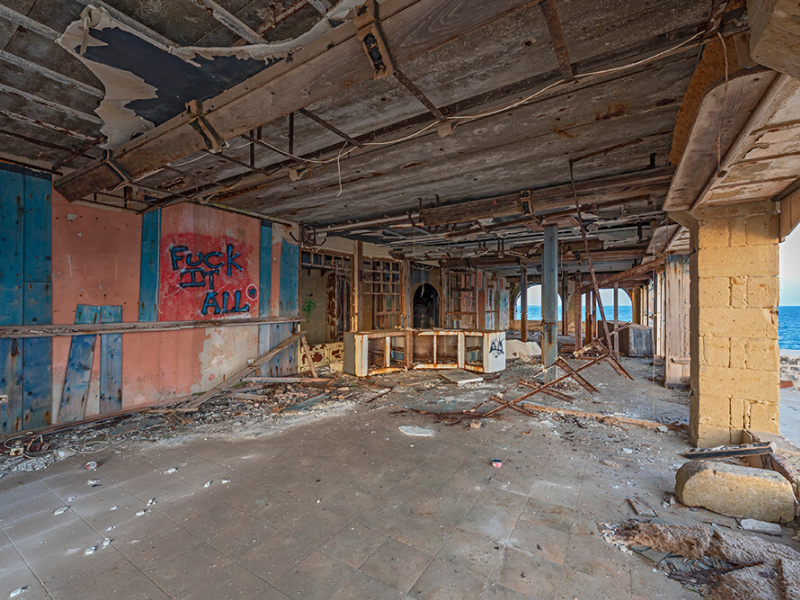
The heritage site in Gozo is in ruin but the Lands Authority will not step in. Photo: Daniel Cilia
A year after the court case was abandoned, then Gozo Minister Anton Refalo answered a question by Said on what the government was doing to save the battery by saying that there was a “sub judice case and there are no other comments to add at this stage”.
Zammit of Wirt Għawdex said he raised the issue of the battery’s restoration with every new Gozo Minister. He told The Shift that prior to the 2013 general election, then Tourism Minister Mario Demarco, had told Wirt Għawdex that the battery would be handed to the Gozitan NGO if the PN were re-elected.
Wirt Għawdex and Din L-Art Ħelwa are both keen to take over the management of the battery to restore it and open it to visitors.
Yet, the precautionary injunction of 2007 remains in force as long as it’s not overturned through a court application filed by the government or Rook Ltd itself.

